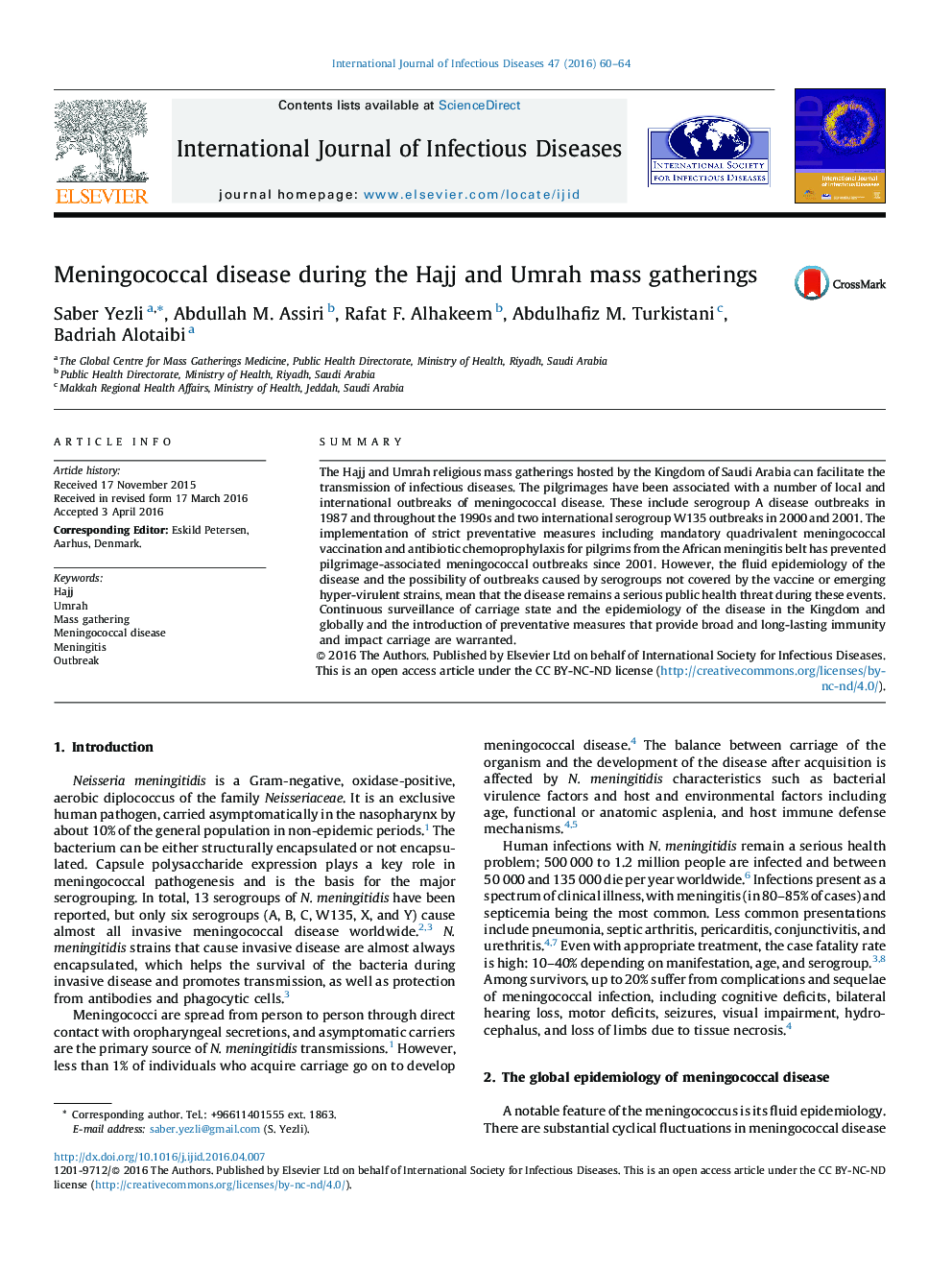| Article ID | Journal | Published Year | Pages | File Type |
|---|---|---|---|---|
| 3361784 | International Journal of Infectious Diseases | 2016 | 5 Pages |
•Hajj and Umrah mass gatherings can facilitate the transmission and spread of meningococcal disease.•International Hajj-related outbreaks occurred in 1987 (serogroup A) and 2000/2001 (serogroup W135).•Local Hajj and Umrah-related outbreaks occurred between 1988 and 1999 (mainly serogroup A).•In 2000, there was a shift in the epidemiology of the disease in Saudi Arabia to serogroup W135.•Strict preventative measures have prevented pilgrimage-associated outbreaks since 2001.
SummaryThe Hajj and Umrah religious mass gatherings hosted by the Kingdom of Saudi Arabia can facilitate the transmission of infectious diseases. The pilgrimages have been associated with a number of local and international outbreaks of meningococcal disease. These include serogroup A disease outbreaks in 1987 and throughout the 1990s and two international serogroup W135 outbreaks in 2000 and 2001. The implementation of strict preventative measures including mandatory quadrivalent meningococcal vaccination and antibiotic chemoprophylaxis for pilgrims from the African meningitis belt has prevented pilgrimage-associated meningococcal outbreaks since 2001. However, the fluid epidemiology of the disease and the possibility of outbreaks caused by serogroups not covered by the vaccine or emerging hyper-virulent strains, mean that the disease remains a serious public health threat during these events. Continuous surveillance of carriage state and the epidemiology of the disease in the Kingdom and globally and the introduction of preventative measures that provide broad and long-lasting immunity and impact carriage are warranted.
